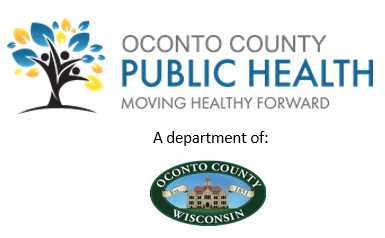DHS Encourages Wisconsinites to Help End Childhood Lead Poisoning
The Wisconsin Department of Health Services (DHS) is marking National Lead Poisoning Prevention Week by encouraging all Wisconsinites to take steps to end childhood lead poisoning by getting the facts, helping children get tested for lead exposure, and checking homes for lead hazards.
“Every child deserves a healthy start in life.” said State Health Officer Paula Tran. “Each year in Wisconsin, thousands of children have their futures put at risk because of lead exposure and poisoning. We know that there is no safe blood lead level in children, so it is critical that we work together to prevent lead exposure.”
Over the past two decades, more than 230,000 Wisconsin children under the age of 6 have been poisoned by lead. Any child can be lead poisoned, but not all children are at the same risk. Children who live in households at or below the federal poverty level and those who live in housing built before 1978 are at the greatest risk of lead exposure.
Lead is toxic, especially in young children. Even relatively low levels of lead exposure can impair a child’s brain development. Children who are lead poisoned can experience delayed growth and development, damage to the brain and nervous system, learning and behavior problems, and a host of other health-related problems.
Lead can be found inside and outside the home. A common source of exposure is lead-based paint, which was used on many homes built before 1978. Lead paint dust or chips are easily ingested by small children when they put their hands or other lead-contaminated objects in their mouths. Other potential sources of lead exposure include drinking water and soil that becomes contaminated with lead that is then ingested.
“Lead poisoning is a serious public health problem, but it is preventable,” said Brian Weaver, lead policy advisor. “The key is preventing children from coming into contact with lead. If your home was built before 1978, you can get it tested for lead-based paint. Contact your local health department to find a qualified inspector.”
The theme for National Lead Poisoning Prevention Week 2023 is “Together, We Can Prevent Lead Exposure!” DHS encourages parents, caregivers, and communities to do their part by:
- Getting the facts: Learn about lead hazards that may exist in your home or your community and how to prevent lead exposure by exploring resources on the DHS website.
- Getting children tested: Learn about Wisconsin’s testing requirements and recommendations on the DHS Lead Testing and Reporting page.
- Getting your property tested: Hire a certified lead inspector or risk assessor to check your home for lead-based paint. To test your drinking water for the presence of lead, contact a certified laboratory for a test kit and sampling instructions or hire a plumbing professional to assist you.
- Making your property lead-safe: If you are renovating your property, make sure you are practicing safe renovation techniques. Hire a certified lead contractor to remove or remediate any lead hazards in your home.
Find more information about how to protect your family from lead exposure and keep your home lead-safe on the Lead-Safe Wisconsin webpage.
